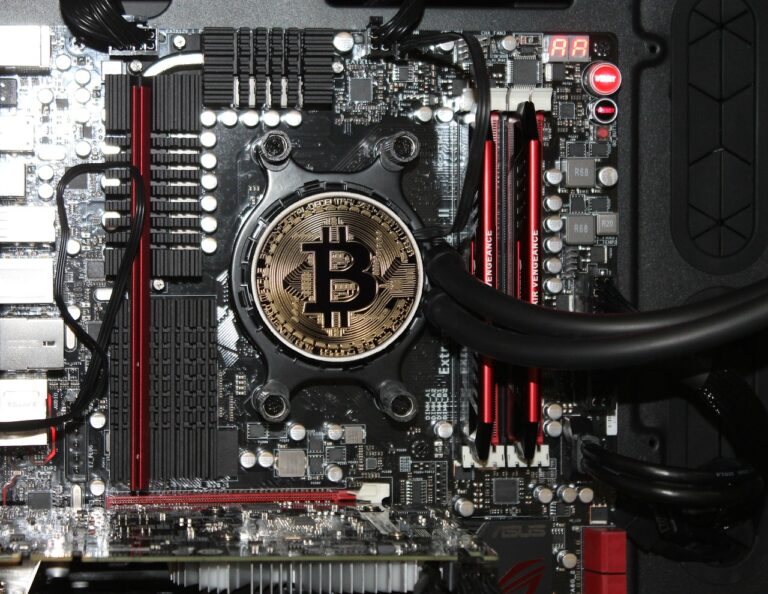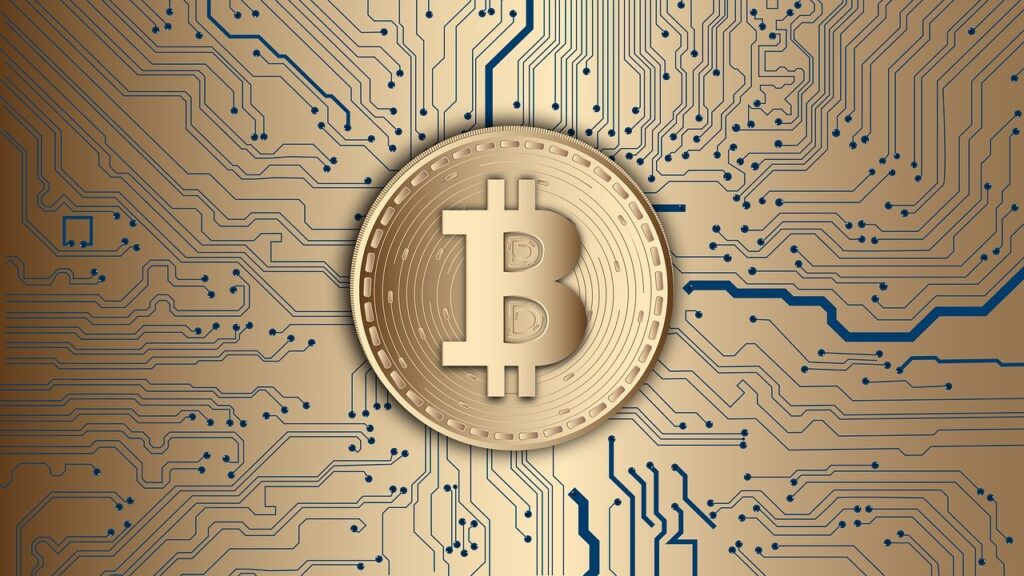Page Contents
ToggleIntroduction
Bitcoin is a digital asset that is not operated by any central authority. It is the first-ever cryptocurrency that was created in January 2009. In a white paper, a mysterious and pseudonymous figure named Satoshi Nakamoto presented the ideas in October 2008 that led to this technology. The identity of the creator still remains unknown.
Unlike other physical currencies, it is not centralized and not operated by the banks or governments. It is based on peer-to-peer technology and cryptography techniques.
In reality, there is no Bitcoin or wallet, just an agreement between networks regarding coin ownership. The private key is used in a transaction to prove ownership of the funds to the network. A person only remembers his private key and does not need anything else to acquire or use cryptocurrencies.
How does bitcoin work?
If you invested 1 Lac on bitcoin in 2010 its price becomes more than 10k crores. If you can become a billionaire by investing in cryptocurrency or more precisely in bitcoin then why is the Indian government not so enthusiastic about it? why it is imposing such a high fraction of tax on it? In this blog, we are going to know how cryptocurrency actually works?
First, you need to remember money=value. Suppose you are going to buy a car for this you are providing money to the seller for which he is providing a car by which you can travel two points faster. Basically, he is providing you value. In ancient times, the Barter system was used for the exchange of value by objects. Time changes and this system is replaced by a physical currency system that is controlled by the government. For this, we have to trust the government.
Again with time physical currency is more or less replaced by digital currency(paytm, Gpay, etc). Before knowing how cryptocurrency actually works you first need to learn what happened when you made an online payment.
What happened during an online transaction?
Suppose I (EU) am going to buy a shirt from a person named X. In short, X person is providing me the value in the form of a shirt. For this, I have to pay money to him. Let the price of that shirt be Rs.3000. To pay I will open Gpay and scan his QR after that I will enter the passcode. It takes 2-3 seconds and then my transaction will get successful if I have the appropriate amount in my bank. In this 2-3 second what is actually happening? Now read carefully
As soon as I try to send 3000 to X person this request is sent to my bank which further checks whether I have 3000 in my account or not if it is available this transaction becomes successful. And the bank will note this transaction in its ledger that I (i.e EU) has now 3000 less in his account and X has now 3000 more. A ledger is nothing but a sheet that stores transaction of customers which is kept in the Bank’s computer. This is the main difference between physical transactions and digital transactions. In a digital system, you just feel that transaction is nothing but an entry in the Bank’s ledger sheet.


For this, I have to trust the bank that it will subtract the exact amount which is told by me. Similarly, X person also has to trust the bank that it will add the exact amount to his account. But only trust is not enough, to control these banks there is a central bank in India it is RBI (Reserve Bank of India) which is controlled by the ministry of finance government of India.
In short, our current financial system is centralized i.e our money is 100% controlled by the central government. They are much more powerful to announce demonetization and then people have to wait in rows for their own money. Now we are ready to know how Cryptocurrency actually works.
Working of Cryptocurrency
To deal with the problem of centralization idea of Bitcoin that is cryptocurrency is given by Satoshi Nakamoto in October 2008. He published a white paper with the title “ Bitcoin: A Peer-to-Peer Electronic Cash System ”. In this white paper, he gave the idea for making our financial system decentralized.
Don’t be confused between bitcoin and cryptocurrency. There are more than ten thousand cryptocurrencies available in the market (e.g Ethereum, Tether, Doge, Solana, etc ) but Bitcoin is the first-ever and most popular cryptocurrency.


Now come back to our old example of buying a shirt from X person. But this time we will buy it through Bitcoin. At the time of writing this post, the value of a single bitcoin is more than Rs.32 lacs but suppose the price of 1 bitcoin is equal to the price of one shirt (i.e Rs.3000). Now the X person gives me the value in form of the shirt for it I will transfer 1 bitcoin from my account to his account but this time we have removed banks to make this decentralized then who is going to make entry to the ledger? Who is going to maintain the ledger?
In the title of the paper, the peer-to-peer system means no central authority is going to interfere with it. Every person who is sending and receiving bitcoin and is a part of this system, is going to maintain this ledger. Now suppose excluding me (EU and X) there are four more people say P, Q, R, S who are part of this bitcoin system. Now the copy of the ledger in which there it is written EU has paid 1 bitcoin to X will be supplied to all people who are part of this system (i.e P, Q, R, S) and everyone will maintain this ledger. Earlier this ledger was maintained by the bank so it was a private ledger but now it is maintained by everyone so it becomes a public ledger. Next time when I go to buy a mobile phone costs 5 bitcoin from X person then everyone maintains the ledger that EU has paid 5 bitcoin to X.
But there are many problems with this.
Problems with the working of cryptocurrency
- Firstly how do they know whether I have 11 or more than 11 bitcoin in my account to pay for the shirt and the mobile phone?
- Secondly if somehow they know I have appropriate balance then what is the surety that everyone (i.e P, Q, R, S) is going to write the correct entry?
- Thirdly, and the most important what about privacy, If anyone on system may know what we are going to purchase and for how much it costs than how it is private?
To solve these problems Satoshi Nakamoto has introduced the way of using the Block-Chain Method. (Read Block-Chain for more clarification)


If we use blockchain technology then these ledgers should be supplied to other 4 persons in the form of blocks. In general, a block contains 3 types of information first is the owner’s public key (i.e the written ledger) second is Hash ( Hash is an auto-generated code that is unique for each block and nearly impossible to be decoded) third is the owner’s private key (It is the key which defines previous blocks identity
Solutions to the Problems with the working of cryptocurrency
By the blockchain method above problems were solved.
The solution to the first problem is to check all transactions made by me (EU) in the past that is checking of all the blocks connected to me in the form of a chain. So that they know whether I have an appropriate balance in my account or not.
The solution to the second problem is such that let’s suppose person R makes a wrong entry in the ledger then the Hash in his block will generate which is different from the other 3 persons. There a group of people called miners are present for verifying the blocks in return for this they are rewarded with a small fraction of bitcoin as a transaction fee. After verifying if the found any mismatch then the information from the majority is counted as true. What if the majority is wrong? For being, the majority wrong 51% of the persons in bitcoin system must need to make the same mistake which is next to impossible for such big network system.
The solution to the third problem is already solved by the introduction of the Hash. Hash is a unique key that is generated using a cryptography technique with the information of the owner’s private and public keys that is impossible to read what is written in it.
Why the Indian Government is not fully legalizing cryptocurrency?
There are three big reasons behind the not fully legalization of cryptocurrency in India.
1. Decentralized Nature:
The cryptocurrency is based on a decentralized network that no any central authority could interfere in it. The power of people’s money will snatch out from the hands of the central authorities. Which is quite not acceptable for the central authorities
2. Increase in illegal activity
As it is difficult for law enforcement agencies to track a crypto transaction because of its cryptography technique, it is beyond the traditional banking system. people started to misuse it. In the dark web on the internet, people had started to accept payment in Bitcoins for selling weapons and drugs
3. Anyone can create their cryptocurrency
Since anyone with knowledge of cryptocurrency can create their own coin, there are a lot of bogus and fraud companies taking advantage of people by promising that once trading started in that particular currency, the value of their money would double or triple.
Philosophy, Vision, and Future of Cryptocurrency
Cryptocurrency as Investment:
The majority of people see crypto as a money growth opportunity. They invest money in cryptocurrency hoping for a higher return in the future and hence get more money in return. This, then become a “store of value” like gold. This is why Bitcoins are sometimes also called “Digital Gold”. Just like other investments this too has a Risk, moreover, it is riskier than other investments. That is why according to some experts You need to invest the money that you are ready to lose in crypto.
Cryptocurrency as Alternate Currency:
For now, cryptocurrency does not serve as a medium of exchange. In India, Bitcoin cannot be used to purchase groceries. In some foreign countries, Bitcoin is used as an alternative currency, so this trend may change in the future. There is actually a technical challenge with bitcoin that makes it harder for it to be used as a medium of daily transactions. The Bitcoin blockchain confirmation takes approximately ten minutes. It can be beneficial in some cases, such as if you are transferring funds between countries, it has lower costs and takes less time than traditional money transfers.
Conclusion
In short, it can be said that cryptocurrency will play a significant role in the future of the finance of the country. It will be the main focus of the people to see whether it can be used as the medium of transaction or will it remain a store of value for investment. That day might be very far away but it can not be said as impossible.
I hope you enjoyed reading this educational blog. Share with your friends and family to make them aware of Cryptocurrency.

